- Echanges et mise en réseau
- Connaissance et apprentissage
- Plaidoyer
- Nos thèmes
Les nouvelles brèves de nos membres, ainsi que celles de la coopération internationale, sur des thèmes actuels en matière de santé.
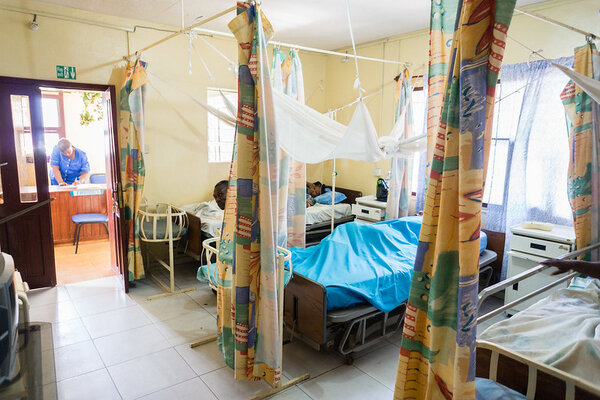
"Mirriam Banda is a midwife, nurse, administrator, counselor and health advocate for 15,000 residents of her community in eastern Zambia at the Kafumbwe Rural Health Center in Katete District. She is married and a mother of three children. In 2011, a severe malaria outbreak nearly cost her daughter her life. The ordeal continues to deeply affect Mirriam, who also battled malaria numerous times during her childhood – so many that she cannot remember the exact number. Today she faces the disease day after day in her work and her community and, in the context of World Malaria Day (April 25), we spoke to her."

Many lower-income countries are spending less on health than they did before the COVID-19 pandemic at a time when donor funding is on the decline.
"In Washington, D.C., where health and finance ministers, global health leaders, and international funders gathered for the World Bank’s Spring Meetings, these are ways of talking — or not talking — about a growing fear: A large group of countries are facing an alarming health funding landscape. “We have a problem globally,” health economist David Evans said Thursday at a forum on health financing. The problem, Evans said, is particularly acute in a group of 28 low- and middle-income countries whose governments are spending less on health than they did before the COVID-19 pandemic, with no prospect — according to International Monetary Fund projections — of returning to those pre-pandemic levels in the next five years."
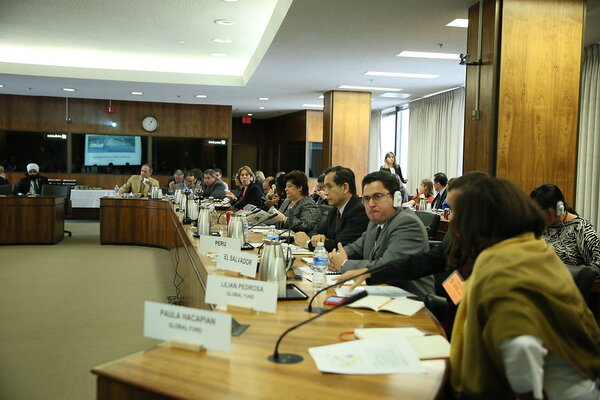
"The Board of the Global Fund to Fight AIDS, Tuberculosis and Malaria (the Global Fund) held its 51st meeting this week in Geneva, Switzerland. While anticipating record disbursements this year, with an unprecedented pace of investment in resilient and sustainable systems for health (RSSH) and pandemic preparedness and response (PPR), the Board repeatedly acknowledged the numerous challenges – including climate change, conflict, displacement, geopolitics, the economic situation, and in particular, the erosion of human rights and gender equality – that undermine the Global Fund partnership’s ability to end the three diseases by 2030."
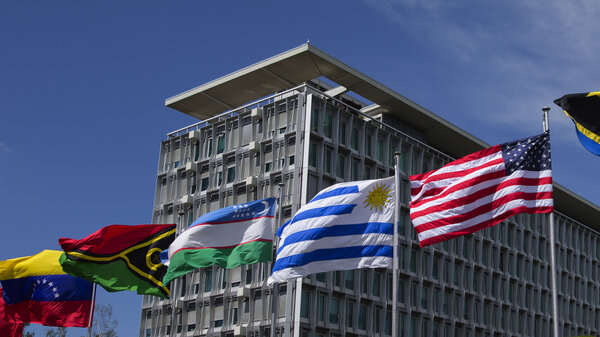
Ein Gastkommentar von Ilona Kickbusch
"Im Zusammenhang mit den Diskussionen der Weltgesundheitsorganisation (WHO) um ein Pandemieabkommen reden Kritiker von einer «WHO-Diktatur». Davon kann keine Rede sein, die Mitgliedländer sind denn auch weit davon entfernt, eine Einigung zu erzielen. Die Fehlinformationen zu den derzeitigen Verhandlungen am Sitz der Weltgesundheitsorganisation (WHO) in Genf nehmen zu. Besonders laut sind jene Stimmen, die einen drohenden Souveränitätsverlust der Nationalstaaten und eine «WHO-Diktatur» am nahen Horizont herbeireden. Sie wissen offenbar wenig über den Standardablauf internationaler Verhandlungen – oder wollen das gar nicht wissen."
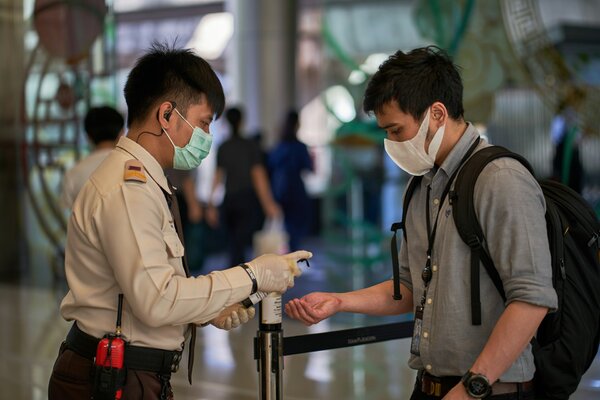
"The latest draft of the pandemic agreement, while deferring many operational issues, keeps equity hopes alive in many aspects – including by cementing in-principle agreements on a pathogen access and benefit-sharing (PABS) system, a global supply chain and logistics network and geographically diverse “capacities and institutions” for research and development. The streamlined 23-page draft was sent to World Health Organization (WHO) member states on Tuesday night ahead of the final meeting of the intergovernmental negotiations body (INB) on 29 April."

As the 6th Planetary Health Annual Meeting begins in Kuala Lumpur, Sophie Gepp and colleagues commend progress in the field of planetary health but call for greater accountability of organisations to ensure planetary health justice
"This year marks the 15th anniversary of the first publication of the framework of “planetary boundaries,” which describes the biophysical limits of Earth systems that, if breached, could have devastating consequences for humanity. Six years after this publication, the report of the Rockefeller-Lancet Commission on Planetary Health defined the concept as “the health of human civilisations and the natural systems on which they depend.” Though progress has been made in the field of planetary health, we need stronger commitment and action for justice and transformative change."

"Artificial Intelligence (AI) can save lives – but “we need to get the regulations right,” according to Dr Ricardo Baptista Leite, CEO of HealthAI, the agency responsible for artificial intelligence in health. To address the urgent need for the robust regulation of AI in the healthcare sector, HealthAI has initiated a worldwide community of practice (CoP), the organisation said last week. This initiative aims to strengthen each nation’s capacity to create well-informed regulations that promote AI’s ethical and fair utilisation in healthcare."
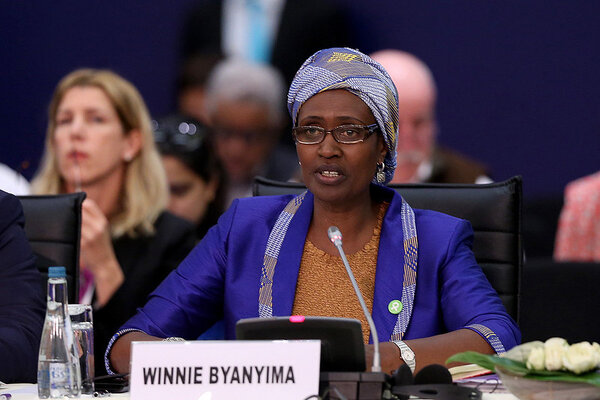
Un appel de Winnie Byanyima, directrice exécutive d'ONUSIDA et secrétaire générale adjointe des Nations unies.
Cette année, la Journée internationale de la femme coïncide avec une période de grands défis. Nous pouvons toutefois nous inspirer des femmes et des filles du monde entier qui mènent, souvent au prix de grands dangers, la lutte pour les droits de toutes et tous. Plus que jamais, nous devons mobiliser nos énergies pour soutenir leur courage. Nous sommes confrontés à une attaque mondiale sans précédent et bien financée contre les droits humains, et en particulier contre les droits des femmes. La démocratie et les progrès durement acquis sont en danger. Ce ne sont pas seulement les engagements pris dans les Objectifs de développement durable pour 2030 qui sont en danger, c'est tout ce que nous avons accompli depuis 1945 qui est en jeu. Pour contrer ce mouvement, Byanyima explique l'importance d'approfondir la compréhension des défis auxquels les femmes et les filles sont confrontées en matière de droits humains et de démocratie. Elle attire l'attention sur les inégalités croissantes dans la société, où la richesse est de plus en plus concentrée entre les mains d'un petit nombre d'hommes, tandis que beaucoup d'autres souffrent de la pauvreté. Byanyima appelle à une transformation des structures de pouvoir qui discriminent les femmes et les filles. Le monde est loin d'atteindre les objectifs spécifiques au genre (SDG5) des objectifs de développement durable.
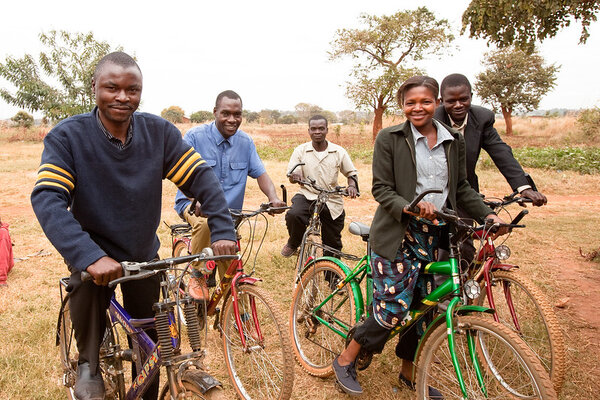
A Wakiso, un district d'Ouganda, l'hésitation à se faire vacciner a été grande pendant la pandémie de COVID-19. Malgré les efforts du ministère de la santé, aucun progrès n'a été réalisé. Cependant, en octobre 2022, un nouveau chapitre s'est ouvert lorsqu'une alliance impressionnante s'est formée. La Makerere University School of Public Health, la Rockefeller Foundation et Amref Health Africa se sont associées au ministère de la Santé et à l'administration locale du district de Wakiso. Leur mission était claire : former et renforcer les équipes de santé villageoises (VHT). Le résultat fut impressionnant et un exemple de solidarité communautaire : 1.000 VHT formées ont pu, grâce à un engagement sans faille, contrer la lassitude vis-à-vis de la vaccination, alimentée par la désinformation, et gagner la confiance de la population. Une vague de changement a été déclenchée.
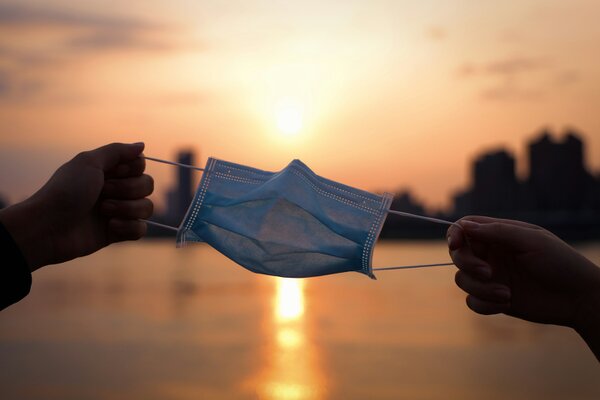
Toujours pas d'accord sur un accès facilité aux informations sur les agents pathogènes et les avantages qui en découlent (Pathogen Access and Benefits, PABS)
L'échange d'échantillons d'agents pathogènes et de données de séquences génétiques (GSD) ainsi qu'une distribution équitable des contre-mesures salvatrices (MCM) en cas de pandémie, telles que les diagnostics, les médicaments et les vaccins, sont essentiels pour la prévention, la préparation et la réponse aux pandémies à l’échelle mondial. Cependant, ces questions, connues collectivement sous le nom de "Pathogen Access and Benefit Sharing (PABS)", restent toutefois un point de désaccord central dans les négociations en cours sur le traité de l’OMS sur les pandémies. Les auteurs soulignent la nécessité de contributions financières obligatoires et d'autres avantages pour un tel système afin de garantir une distribution équitable des médicaments et des vaccins pendant une pandémie. Ils proposent des améliorations pour actualiser le texte de négociation et soulignent l'importance d'une forte implication des pays en développement dans les négociations. La création d'un fonds dit « PABS » devrait pas seulement servir à soutenir le « PABS », mais aussi à financer l'écart dans la distribution en temps voulu des MCM aux pays à faible et moyen revenus, car il s'agit d'une partie importante du partage des bénéfices attendu par les gouvernements des PFRM compte tenu de l’iniquité dont ils ont été victimes pendant la pandémie de COVID-19. En outre, les engagements devraient inclure le fait que ceux qui ont accès aux ressources biologiques et aux DGS (Maladie du stockage du glycogène) à des fins commerciales devraient verser des contributions supplémentaires aux pays à faible et moyen revenus pendant une pandémie, en fonction des besoins. Les auteurs avertissent qu'un « PABS » faible et inefficace est aussi bon qu'un « PABS » inexistant. Il ne reste que quelques semaines avant l'assemblée plénière de mai. Un échec des négociations serait une catastrophe après toutes les grandes promesses.

New amendments to patent rules in India will jeopardize the country’s ability to produce generics, dealing a strong blow to access to medicines in both India and other countries of the Global South
"India notified amendments to its patent rules on March 15 this year. Despite opposition by patient groups, activists, civil society and academics, the government has brought in changes that will significantly impact India’s ability to produce generic drugs and maintain access to affordable medicines. This will impact not only India, but also other countries which obtain cheaper medicines from India. It is no coincidence that just five days before the amendments were announced, India signed a Free Trade Agreement (FTA) with the European Free Trade Association (EFTA) that comprises Norway, Iceland, Liechtenstein and Switzerland. Switzerland is home to big pharma companies like Novartis, Roche and Bayer and successfully pressured India to accept TRIPS plus measures in the agreement."
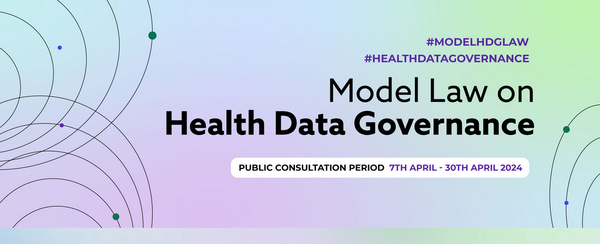
Public Consultation Period 7th - 30th April
"Transform Health and partners are convening a period of public consultation on a draft Model Law on Health Data Governance, which articulates core elements, guidance and model legal text, informed by equity and rights-based principles, among other international, regional and national commitments and best practice. The purpose of this consultation period is to gather stakeholder and expert feedback on the draft, including its content and how it is structured. Through this process, we aim to strengthen and validate the draft, while building consensus, alignment and broad support around the core elements."
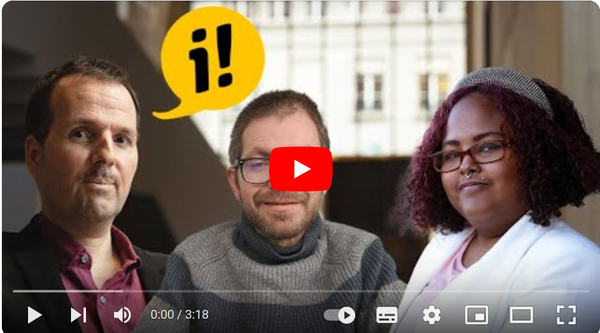
Initiative d'inclusion d'Amnesty International
"Entre engagement politique et aspiration à vivre de manière autonome, cette vidéo en lien avec l'initiative pour l'inclusion vous présente les histoires de Sébastian, Suad et Marius. Trois personnes en situation de handicap, trois parcours de vie, mais un appel commun: engageons-nous touxtes pour l'initiative pour l'inclusion! Vous pouvez découvrir les portraits de Sébastien, Suad et Marius, ainsi que ceux de cinq autres personnes concernées sur notre site web."
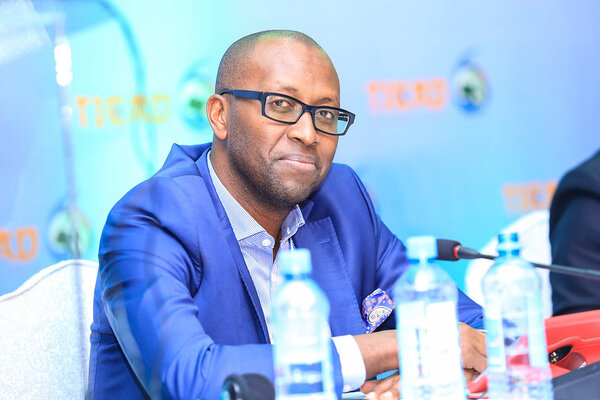
Africa needs a paradigm shift in healthcare financing in the face of limited resources. Opinion by Dr. Githinji Gitahi, head of Amref Health Africa
"Thirteen years ago this month, member states of the African Union met in the Nigerian capital. They adopted binding commitments to spend at least 15 per cent of their national budgets on health and urged donor countries to increase financial support for the continent’s health sector. What is now known as the Abuja Declaration recognized that Africa’s future rests on the health of its people. In this guest column Dr. Githinji Gitahi, head of one of Africa’s leading health organizations, looks back at that goal and forward at what needs to be done. The Abuja Declaration gives a clear and measurable target, leaving little room for debate. It provides a straightforward metric to assess which countries have met the 15 percent goal, those that haven’t, and those worthy of celebration for their achievements. However, while the spending benchmark is a tangible indicator of a government’s commitment to healthcare, it falls short in addressing the broader determinants of population health."
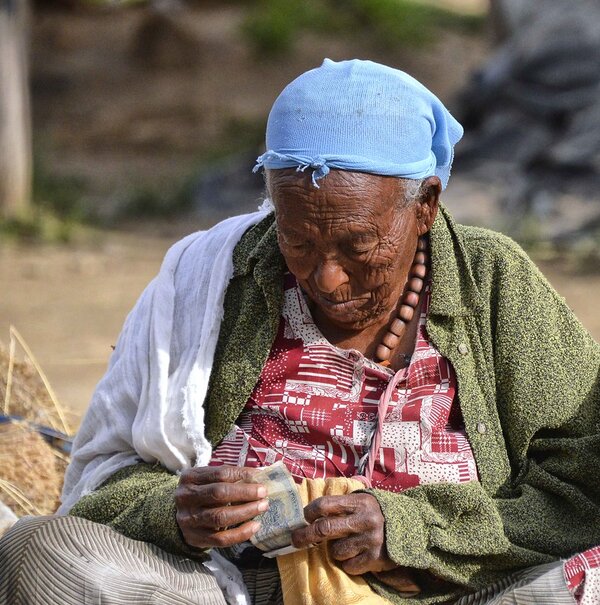
With aging populations in low- and middle-income countries come concerns about health care, pensions, and people falling into the gaps.
"Henry Mbene in Nigeria receives food and health checks from NGOs. Luisa Pelamo in Argentina keeps active by volunteering in a local community center. An NGO taught Chandra Devi Kafle in Nepal how to use a mobile phone. These people all have different lives in different environments, but upon reaching an older age, each of them has experienced life-changing challenges requiring additional support. While development practitioners have given the so-called youth bulge much attention in recent years, particularly in Africa, less notice has been paid to the impact of improved global life expectancy."